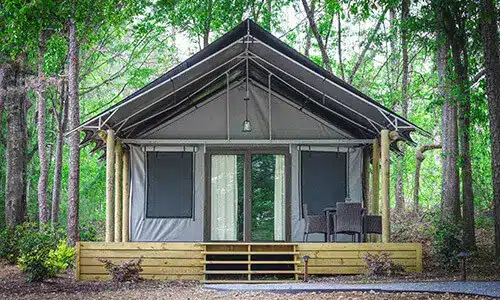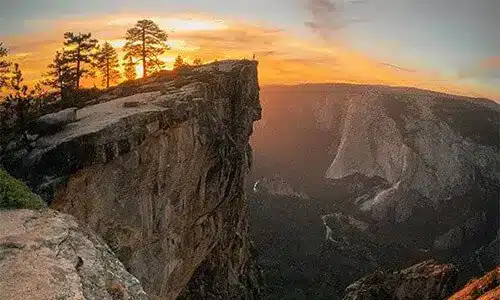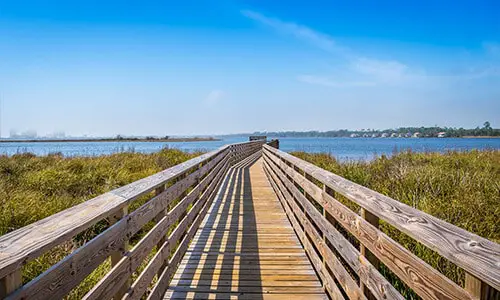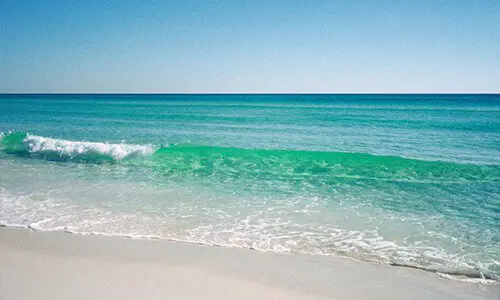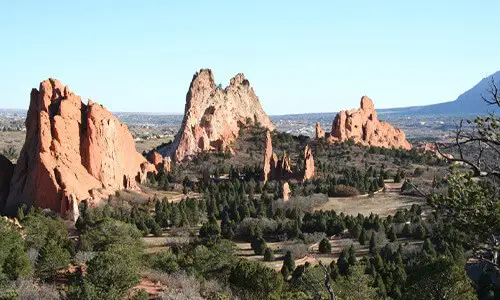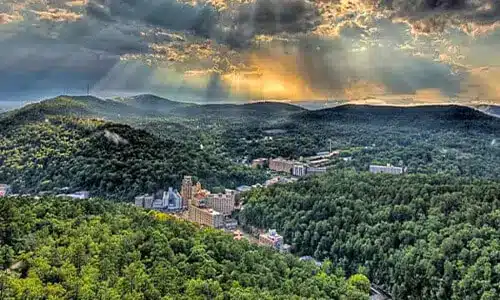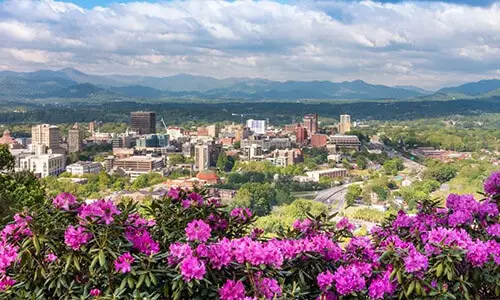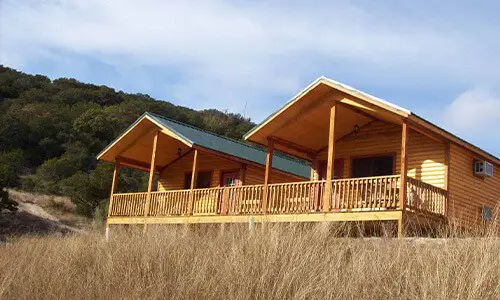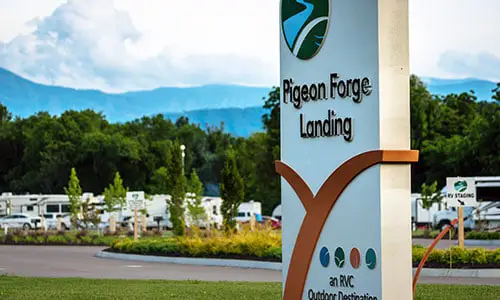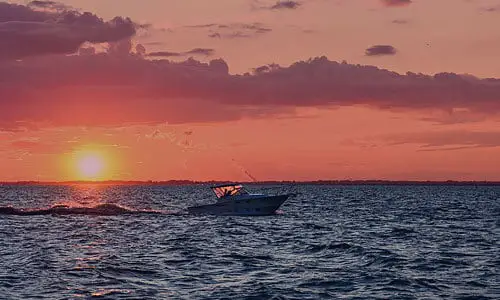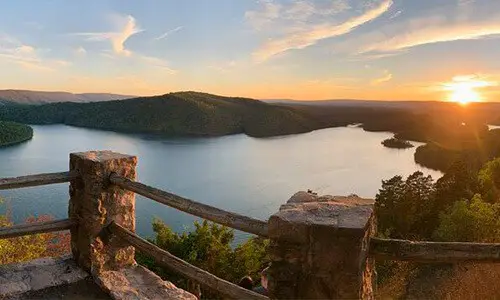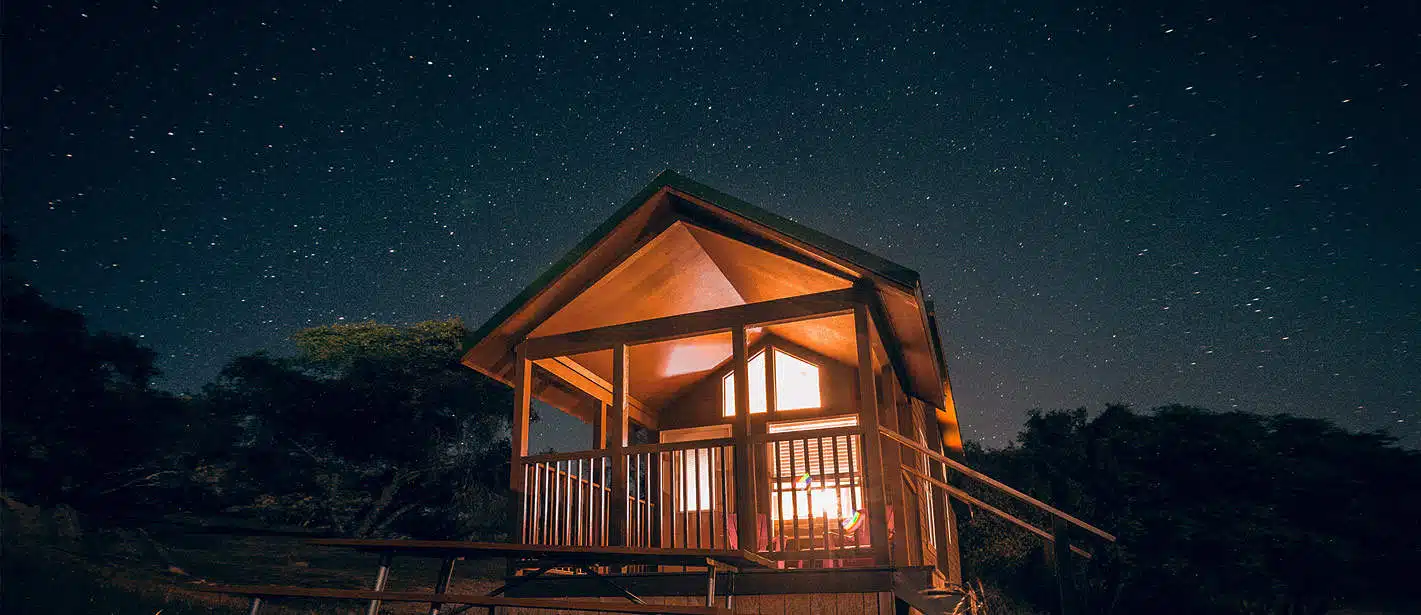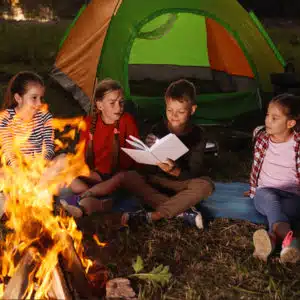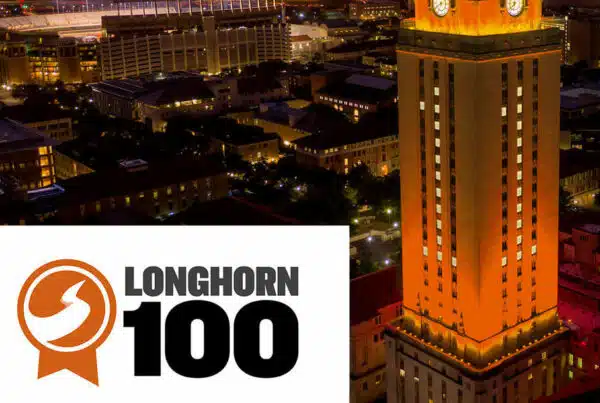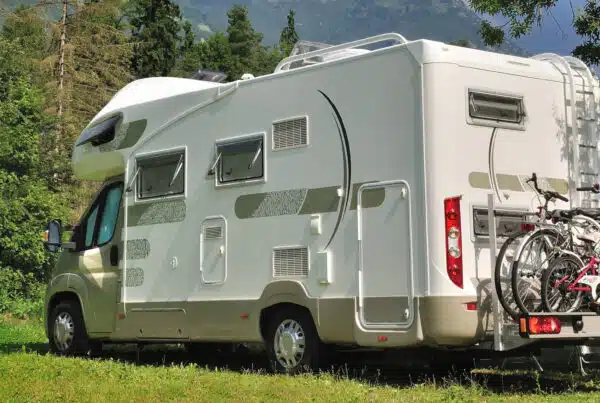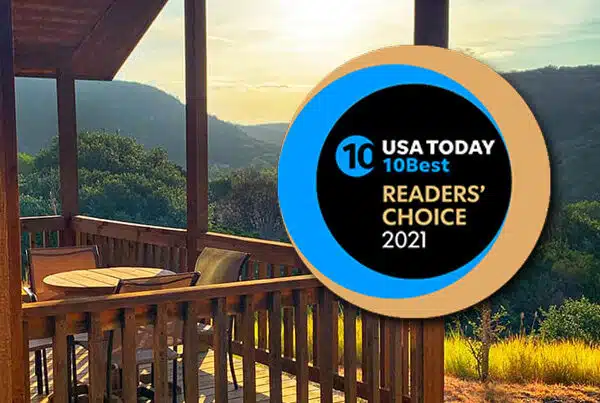By Sherman Goldenberg [via Woodall’s Campground Management]
Memphis, Tenn.-based RVC Outdoor Destinations (RVC), an emerging provider of “high-quality U.S., outdoor vacation resorts,” was founded in 2006 with an eye toward redefining North America’s camping experience through an outdoor destination concept involving upgraded RV and marine resort resorts offering travelers the benefit of camping “on their own terms” in RVs, tents, yurts, cottages or cabins.
RVC, offering affordable lodging options as well as upscale accommodations and hotel-like amenities like concierge services, is intent on developing, owning and operating vacation resorts in naturally attractive environments in close proximity to local attractions and activities. Those amenities run the gamut from community lodges to coffee and wine bars, convenience stores, free cable and Wi-Fi, game rooms, fitness centers, modern swimming pools and pet facilities plus scooter, bike and golf cart rentals.
Driven by outspoken CEO Andy Cates, RVC is focused on expansion throughout the U.S. beyond its current seven resorts, including 400-acre, 120-site Catherine’s Landing in Hot Springs, Ark.; Carrabelle Beach and Carrabelle Boat Club, both in Carrabelle, Fla.; Live Oak Landing, Freeport, Fla.; Pine Mountain, Pine Mountain, Ga.; Mountain Springs Cabins, Ashville, N.C.; and recently acquired 200-site Garden of the Gods, a facility located within sight of Pikes Peak and walking distance of Manitou Springs now being renovated in Colorado Springs. Colo.
And Cates, a Memphis native, University of Texas grad and real estate developer by trade, says he and his associates are just getting started as “capital partners,” operators and, more often than not, active participants in the facilities they choose to acquire across the U.S. “You will see us grow in three ways,” says Cates. “We will purchase resorts where we can buy them intelligently. We will joint venture existing resorts that we reflag as RVC resorts and then, in extraordinarily select opportunities, you’ll see us buy land and build new resorts.” Here are some edited highlights of a conversation between Cates and Woodall’s Campground Management Publisher Sherman Goldenberg.
WCM: What, in your words, is the central mission of RVC – the thing that sets it apart from all the other park operations that claim a high level of amenities and great locations?
Cates: We are trying to redefine camping and lead a specific niche in outdoor hospitality. To put it simply, we want to be the Hilton of the campground world and believe we are leading that market. We think that the outdoor hospitality world and especially, the RV world hasn’t seen significant change in five decades. But we think that change is inevitable and that it’s happening now. We are extraordinarily motivated to help accelerate that inevitable evolution in segmentation where there is an understanding of the different quality products among these outdoor hospitality resorts.
At RVC, we don’t do RV parks. We do RV resorts and outdoor destinations. We are not saying that to criticize or diminish other resorts or other resort owners. We are saying that just like you would whether you are going to stay at a Best Western or Hilton Hotel. There’s nothing wrong with a Best Western, but you might prefer better lodging. And right now, in our opinion – and we’re putting our money where our mouth is – that has never been clear in the RV world.
WCM: What is it that hasn’t been clear in the RV arena?
Cates: The quality and segment differential is extraordinarily uncertain to the guests. We talk a lot about rating systems, which we find often inconsistent. But in reality, the average guest, and especially the new guest who is either a new RVer or who rented an RV or is looking for a cottage experience, to me those folks don’t even know what the existing rating systems are.
It’s very difficult for that guest to go to a single resort portfolio company and get any true consistency of experience. Our goal, on the other hand, is to provide that on a national basis, and we’re doing that. Now, granted we are starting small and we’re focused on quality and consistency in getting our brand right, versus just growing for the sake of growth. But we think this is happening and that we will accelerate what will inevitably happen nationally.
WCM: How did all this come about?
Cates: We did a lot of research, spent a lot of time traveling and RVing, before we started up six years ago. We’ve got over 100 years of RVing experience in our company, collectively. We don’t do this lightly or arrogantly. But we’re excited and enthused because we are seeing our guests confirm our thesis. Again, we are putting our money where our mouths are. We spent a lot of time and money building this foundation, and we are excited about where we’re going. This is the least passive investment on the planet.
WCM: It’s not a business you’d want to manage from afar, right?
Cates: People who have historically looked at this business from the real estate world who have never been in this business often assume that it is a relatively passive investment that does not require an enormous amount of energy. But anybody that knows the business knows that it’s a full-court-press hospitality business that requires an enormous amount of energy and focus.
Again, our thesis from the beginning is to be the first to build that Hilton quality segment that does not exist today.
In this illustration from CNNMoney, RVC Outdoor Destination’s Andy Cates dons a pair of fictitious
RVC Outdoor Destinations President and CEO Andy Cates
boxing gloves for his company’s competition with traditional campgrounds.
Now, I should add that we have a lot of respect for KOA. I want to make that crystal clear. We respect KOA a lot. We like the people there. We think the culture’s good. But frankly, they are going to go through an inevitable segmentation because they have roughly 480 resorts, and they have a very wide range of quality with regard to their physical resorts.
They’re extraordinarily good markets and good people and franchisers that provide a lot of resources, but the physical resorts are often limited. They are the only brand nationally that I believe the average consumer knows.
WCM: Tell us more about this “segmentation” concept, something we’ve heard about among other forward-thinking industry people.
Cates: We have proposed specific definitions of the outdoor hospitality industry. We believe there are campgrounds, which are rustic resorts that are generally within state or federal parks. We think there are RV parks, which can be overnight parks or extended-stay or traditional RV parks, but are typically more oriented toward a single-night stay and are extraordinarily price sensitive.
Then, there’s a segment that we are focused on – RV resorts – and that is going to be your high quality, highly amenitized, well-located resort that is going to have a lot more in common with a hotel than a trailer park.
On top of that you’ve got the “outdoor destination,” which is multiple lodging options, not just RV. You are going to have significant cottage inventory, yurts, access to boating and well-amenitized facilities with beautiful environments that generally have a hotel-like lobby. We’ve built those in Live Oak Landing in Destin (Florida) and in Hot Springs (Arkansas) at Catherine’s Landing, which is on 400 acres and has a mile of waterfront and is only five minutes from one of the largest horse tracks in the country and ten minutes from downtown Hot Springs.
And finally, there’s the luxury motorcoach resort segment, the Signatures and Outdoor Resorts of America type of facilities, which is for your affluent segment, but for motorcoach owners only, and that’s not a business we are in.
Please note, by the way, that we are not claiming to be a luxury brand, just like Hilton is not a luxury brand. Ritz and Four Seasons are luxury brands and there are RV resorts out there that we’re aware of that are that great. But, again, that’s not what we do. We think there’s a place for that, but we as an industry need to see a better understanding of the definitions of these resorts.
WCM: So, obviously, you think that a better grasp of this “segmentation” concept will serve the entire industry better in the long haul?
Cates: For the outdoor hospitality industry to grow, to attract new RVers and to attract families and Boomers to come to our resorts and rent cottages, we must do a better job of defining what we are.
I can tell you right now, there is an enormous audience of people in the Unites States, especially women, who, if they hear that you’re offering them a stay in a wonderful cottage in a beautiful environment, will be interested. But if you tell them that beautiful environment is an RV park, they’re done, they’re out. That’s common sense and we are not using common sense as an industry to explain what these differences are. If we are trying to attract guests and consumers to our industry, we need to do a better job of explaining what the value proposition and quality experience is. We are not doing that well, in our opinion.
WCM: So, given a more refined approach on the part of the RV park and campground sector, you see good things down the road?
Cates: There’s a huge opportunity cost of not getting on our game because there’s an enormous number of entertainment and hospitality options on the planet right now. Now, I couldn’t be more excited about the potential for the outdoor hospitality sector right now or we wouldn’t be spending millions of dollars on it because I absolutely believe that, culturally and as a society, everything is going our way in terms of people wanting to go back to the basics and spend more time with their families in an affordable way. And you’ve also got this huge wave of Baby Boomers retiring who want to have a quality retirement.
But because there are a lot of other people in competition right now, we have to be more aggressive communicating what we offer. And we’ve got to be more consistent and accurate in explaining our value proposition. If we do that, we have a huge competitive advantage in trying to get people’s attention. Frankly, what we are offering is wonderful. It’s solid and makes a ton of sense.
WCM: You mean getting that average, non-RVing American family to wake up to the reality of what kind of accommodations now exist, right?
Cates: Yes. It’s not an accident that KOA is spending so much energy on vertical units, bringing park models into their resorts and really competing with hotels and motels. I laud them for that. That’s smart. But to do that, you have to have mom and dad know that they’re not just staying in a box in a parking lot. If that’s the perception they have, you’re not going to get them. You’ve got to educate them – that you exist and that you are an alternative and that it’s a damn good alternative.
WCM: And that – changing perceptions — is not a simple thing to do.
Cates: No, that’s why we are spending a lot of time on PR and social media, on search engine optimization, organic and paid searches, gorilla marketing and on getting loyal customers to spread the word.
But to your point, when you really add up all of our collective marketing budgets in the outdoor hospitality world, it’s a blip on the radar compared to the hotel industry.
That’s why you hear me saying we’re going to have to be better and more efficient. We have to be. And again, the good news is that it’s already happening. Without the Internet, without the web, we wouldn’t have a chance. We would have never started this company.
That is a game changer utilizing our guests’ mailboxes. That is their lifeline to society. That gives us an advantage to get to them like we never would have been able to get to them. And it’s happening. So, that allows us to compete with the 9,800-pound gorilla, the hotel industry.
By Sherman Goldenberg [via Woodall’s Campground Management]
